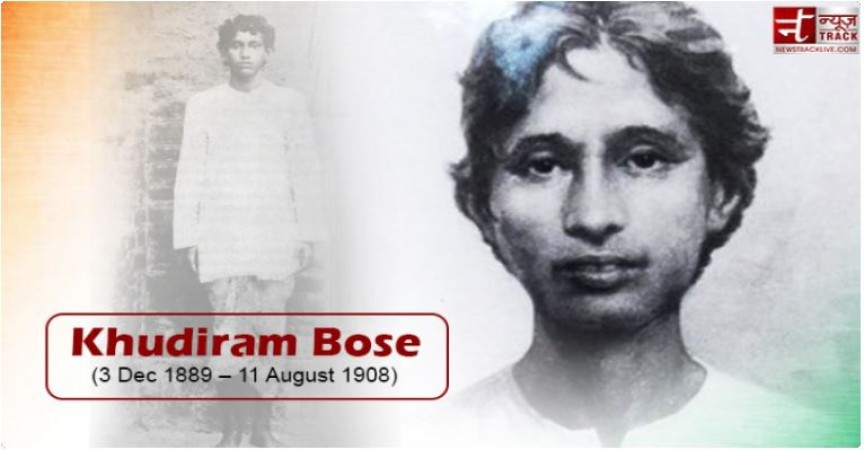
Kolkata: Khudiram Bose, a young and fearless revolutionary, stands as a shining example of bravery in India's freedom struggle. Born on December 3, 1889, in the village of Habibpur in Bengal's Midnapore district, Khudiram's journey to martyrdom began at an early age. His parents, Trailokya Nath Bose and Lakshmipriya Devi, passed away when he was young, and his elder sister took on the responsibility of raising him. From a young age, Khudiram was deeply influenced by the rising tide of patriotism and began participating in political activities while still in school.
The early 20th century saw a surge in revolutionary activities, especially after the British government announced the partition of Bengal in 1905, a move that was met with widespread opposition. Khudiram, inspired by the likes of Aurobindo Ghosh and Sister Nivedita, joined the movement against British rule. He began his revolutionary activities under the leadership of Satyen Bose and quickly became known for his daring exploits. At just 16 years old, he planted bombs near police stations and targeted government officials, making a name for himself as a fearless young revolutionary.
Khudiram's revolutionary zeal led him to join the Revolutionary Party, where he played a significant role in distributing pamphlets of 'Vande Mataram.' He was arrested twice by the police in 1906 for his activities but managed to escape or was released due to his young age. His determination and courage, however, only grew stronger.
In December 1907, Khudiram made an attempt on the life of the Governor of Bengal by attacking his train, but the Governor narrowly escaped. The following year, Khudiram and his fellow revolutionary, Prafulla Chaki, were assigned the task of assassinating Kingsford, a judge notorious for his harsh punishments of revolutionaries. On April 30, 1908, they attacked what they believed to be Kingsford's carriage, but tragically, the bomb killed two European women instead.
In the ensuing chaos, Khudiram and Prafulla fled. Khudiram was eventually captured at Vaini railway station, exhausted and alone. Prafulla, on the other hand, chose to end his life rather than be captured by the British. Khudiram was arrested, tried, and sentenced to death. He was hanged on August 11, 1908, at the age of just 18.
Khudiram's courage and sacrifice left an indelible mark on the nation. His martyrdom inspired countless others to join the freedom struggle, and his legacy was honored in Bengal through songs, poems, and even a special dhoti that bore his name. Schools and colleges were closed in mourning, and his bravery became a symbol of the revolutionary spirit that fueled India's fight for independence.
Today, Khudiram Bose is remembered as one of India's youngest martyrs, whose fearless dedication to the cause of freedom continues to inspire generations. His life and sacrifice serve as a powerful reminder of the countless young revolutionaries who laid down their lives for the independence of their motherland.
Revival of the Martand Surya Mandir: A New Era of Restoration and Worship in Jammu and Kashmir
Hindenburg's Credibility in Question After Supreme Court Loss, Yet Opposition Amplifies Its Claims !